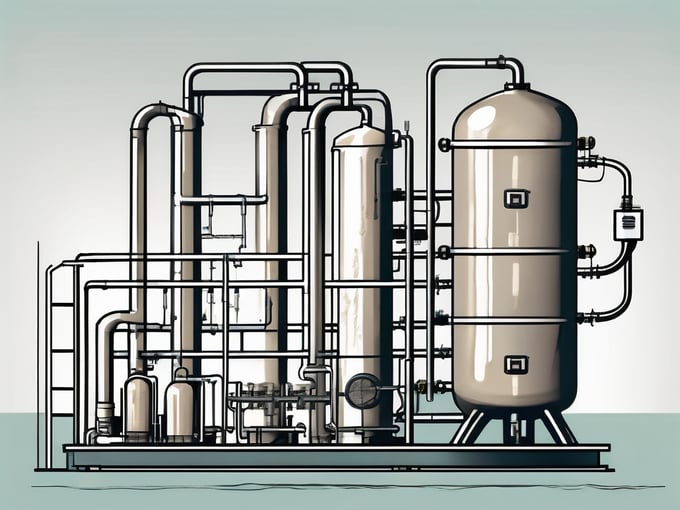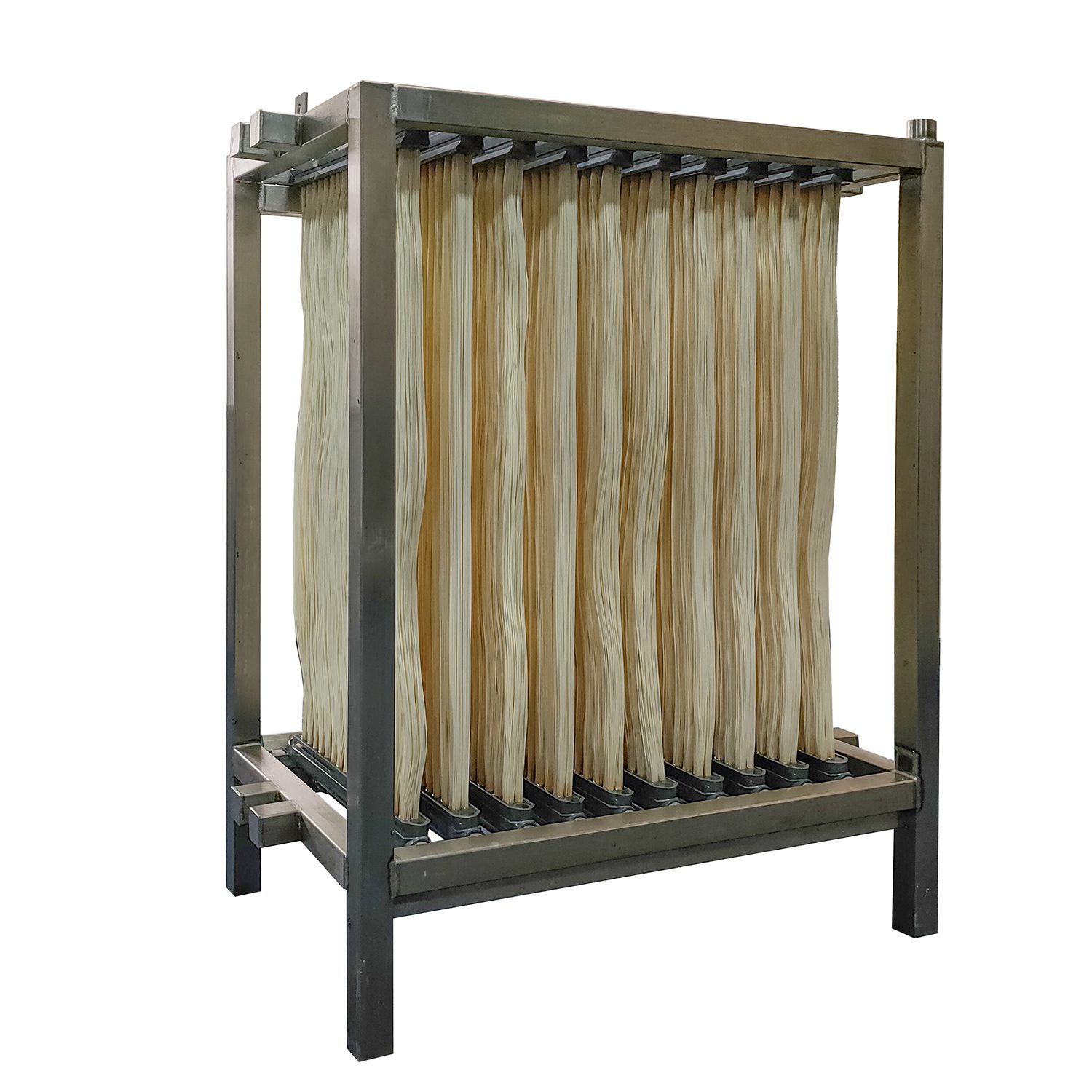Exploring the Benefits of Membrane Bioreactor in Municipal Wastewater Plants
Exploring the Benefits of Membrane Bioreactor in Municipal Wastewater Plants
Blog Article
Membrane Layer Bioreactors Discussed: Effective Solutions for Clean Water
Membrane bioreactors (MBRs) have emerged as a sophisticated solution for attending to the pushing challenges of wastewater treatment - Membrane Bioreactor. By incorporating biological processes with innovative membrane filtering, MBRs not just enhance the quality of cured water however likewise minimize the spatial requirements of treatment facilities.

What Are Membrane Bioreactors?
Membrane bioreactors (MBRs) are advanced wastewater treatment systems that incorporate biological destruction processes with membrane purification innovation. This combination enables the reliable removal of contaminants from water, making MBRs a recommended selection in different applications, consisting of community wastewater therapy and commercial effluent administration.

Among the crucial advantages of MBRs is their capability to produce top quality effluent, frequently appropriate for reuse in irrigation or industrial processes. Additionally, MBRs call for a smaller sized footprint contrasted to traditional treatment systems, making them optimal for urban settings where room might be limited.
Moreover, MBRs can properly manage varying influent loads and are less at risk to the results of toxic shocks. These features add to their expanding popularity as a lasting remedy for attending to the raising demand for clean water while minimizing ecological effects.
Exactly How Membrane Bioreactors Job
While the procedure of membrane layer bioreactors (MBRs) might seem complex, it basically focuses on the synergy in between biological processes and membrane filtering. MBRs incorporate a biological therapy procedure, usually turned on sludge, with a membrane layer separation device to deal with wastewater successfully.
In an MBR system, wastewater is initial introduced right into a bioreactor where bacteria weaken raw material and other contaminants. The biological activity reduces the concentration of contaminants while promoting the growth of biomass. Following this organic therapy, the combined alcohol undergoes membrane layer purification, which can be microfiltration or ultrafiltration, depending upon the desired effluent top quality.
The membranes act as a physical obstacle, enabling water and tiny solutes to pass while maintaining suspended solids and bigger particles. This enables the system to maintain a high concentration of biomass within the reactor, boosting the therapy efficiency.
Furthermore, the continuous splitting up of cured water from the biomass facilitates a compact design and reduces the footprint of the therapy center. In general, the mix of organic deterioration and membrane layer purification in MBRs results in reputable and effective wastewater therapy, guaranteeing top quality effluent appropriate for numerous applications.
Advantages of MBR Modern Technology
One of the vital advantages of membrane layer bioreactor (MBR) innovation is its ability to create high-quality effluent with a significantly decreased footprint contrasted to standard wastewater therapy methods. MBR systems efficiently incorporate organic treatment and membrane purification, causing exceptional removal of impurities, including put on hold solids, pathogens, and raw material. This ability results in effluent that frequently fulfills or exceeds strict governing requirements for reuse and discharge.
In addition, MBR innovation permits higher biomass concentrations, which enhances the therapy performance and lowers the needed activator volume. This compact design is especially helpful in urban locations where area is restricted. The functional flexibility of MBR systems additionally implies they can adapt to varying influent top qualities and circulation prices, making them suitable for a vast range of applications.
Moreover, the minimized sludge production related to MBR procedures adds to reduce operational and upkeep prices. The membrane layers act as a physical obstacle, reducing the risk of obstructing and making it possible for longer functional periods between cleansing. In general, the benefits of MBR innovation make it an appealing option for lasting wastewater therapy, dealing with both ecological worries and the need for effective source monitoring.
Applications of Membrane Layer Bioreactors
With their convenience and performance, membrane layer bioreactors (MBRs) discover applications across various fields, including local wastewater treatment, commercial processes, and also water improvement. In community settings, MBRs offer a portable solution for dealing with wastewater, successfully getting rid of pollutants while all at once creating top quality effluent that meets strict regulatory requirements. This makes them especially appropriate for locations with minimal area.
In industrial applications, MBR technology is made use of for dealing with procedure water, specifically in sectors such as food and beverage, pharmaceuticals, and petrochemicals. These sectors gain from MBRs' capacity to deal with high organic tons and their effectiveness in recuperating important resources from wastewater, such as nutrients and water.
Moreover, check this MBRs play a crucial role in water recovery efforts, making it possible for the reuse of treated wastewater for watering, industrial procedures, and even as potable water after more therapy (Membrane Bioreactor). Their effectiveness in eliminating microorganisms and contaminants makes them a trustworthy choice for making certain water quality in different reuse applications
Future of Water Therapy Solutions
The future of water therapy services is positioned for transformative improvements driven by technical technology and boosting ecological understanding. As international water deficiency ends up being a pushing concern, new techniques, including membrane layer bioreactor (MBR) systems, are set to play a pivotal function in improving the effectiveness and sustainability of water therapy processes.
Arising innovations such as artificial knowledge and machine understanding are expected to optimize therapy operations, permitting real-time tracking and predictive upkeep. This will certainly enhance the total dependability and efficiency of water treatment facilities. Advancements in membrane layer products, such as graphene and nanofiltration, promise to enhance permeation rates and decrease fouling, leading to reduced energy usage and functional costs.
Additionally, the assimilation of renewable power sources right into water treatment plants will certainly add to greener practices. The round economic climate design will certainly additionally get grip, encouraging the recuperation of valuable resources from wastewater, such as nutrients and energy.
Verdict

Membrane bioreactors (MBRs) have arised as an innovative option for attending to the pushing difficulties of wastewater treatment. By integrating organic procedures with sophisticated membrane purification, MBRs not just enhance the quality of treated water but also lower Home Page the spatial needs of therapy centers.One of the essential benefits of membrane layer bioreactor (MBR) modern technology is its ability to create top notch effluent with a substantially reduced footprint contrasted to conventional wastewater treatment methods.With their flexibility and performance, membrane bioreactors (MBRs) locate applications across different fields, including metropolitan wastewater therapy, industrial processes, and even water improvement.In final thought, membrane layer bioreactors represent a significant innovation in wastewater treatment innovation, incorporating organic procedures with efficient membrane layer go to this website purification to generate high-quality effluent.
Report this page